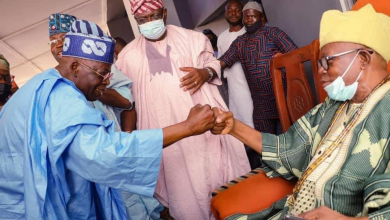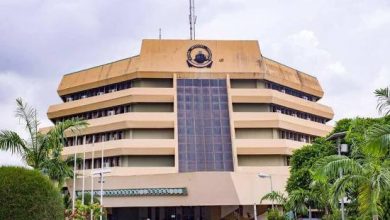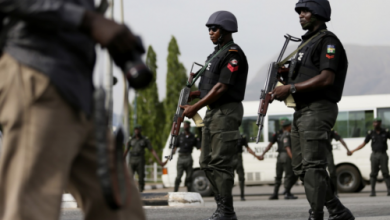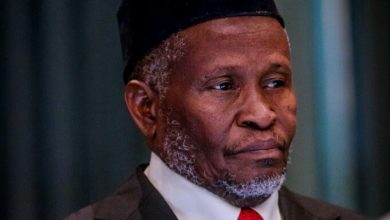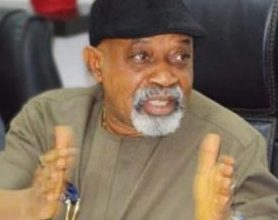NATION
OPINION: APC Primaries And PMB’s Legacy
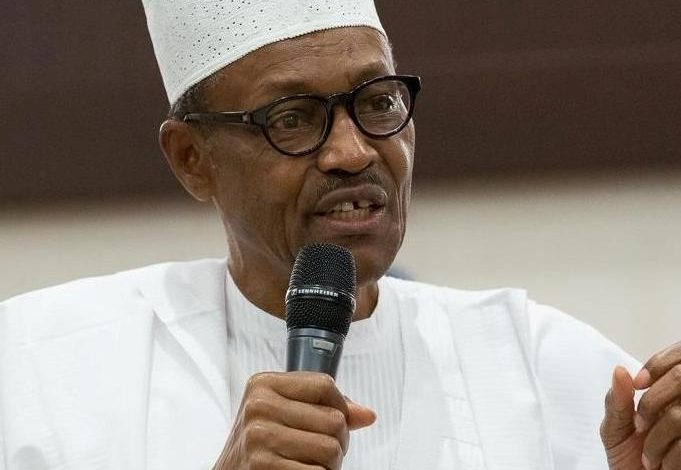
BY SEGUN AYOBOLU
Despite the shift in the scheduled timetable, which would have seen both the ruling All Progressives Congress (APC) and opposition Peoples Democratic Party (PDP) hold their respective presidential primaries to elect presidential candidates for the 2023 polls this weekend, the exercise when it holds will be interesting and momentous for both. For this analysis, my focus will be the intra-party polls of the APC.
For one, it is the ruling party and the election, in reality, is for it to win or lose just like it was the PDP through its arrogance and recklessness that virtually gifted power to the APC on a platter of gold in 2015. Incidentally, former President Goodluck Jonathan has been pontificating on what he describes as the mess that the primaries of the APC and PDP have been, complaining about the excessive monetization of the exercises.
He forgets that it was his utter disregard for the internal democratic processes of the PDP and his utilization of presidential power to clinch the Party’s ticket for the 2015 elections at all costs that led to the party’s implosion and his emphatic loss leading to the APC’s ascendancy to power. Dr Jonathan lacks the moral integrity to preach intra-party democracy to anybody.
Again, but for the unfortunate and avoidable intra-party intrigues, rivalry and mutually destructive conflicts among its various factions and fractions that have hobbled its performance, the APC administration of President Muhammadu Buhari has generally led the country in a better direction away from the utter lack of vision, policy impoverishment and open venality of much of the PDP’S 16 years in power.
In spite of earning substantially less revenue in its seven years in power so far than the PDP did in one and a half decades as a result of the sharp decline in international oil prices, the devastations of the unanticipated Coronavirus pandemic and now the implications of the Russia-Ukraine war, the APC has achieved more in terms of infrastructure provision, efforts to alleviate poverty as well as diversify the economy than the PDP did.
Rather, therefore, than completely abandon the policy direction and legacies of the Buhari administration as the PDP is naturally most likely to do if it regains power in 2023, what Nigeria needs after Buhari is a President who will appreciate and build on the successes of the administration while taking effective measures to address and ameliorate its failings particularly in the areas of national security and nurturing a new sense of inclusiveness in governance to revive the spirit of unity, nationalism and patriotism across Nigeria.
It is obvious that only an APC candidate can do this. But can such a candidate emerge through a free, fair, transparent and credible intra-party process in its presidential primaries slated for Sunday?
One of the most enduring legacies of President Muhammadu Buhari, which he will bequeath to Nigeria after his tenure, is his respect for democratic principles and strict adherence to stipulated rules and regulations particularly with respect to the affairs of his party. Buhari selected a consensus National Chairman that emerged at the party’s last National Convention, Alhaji Abdullahi Adamu, at the instance of governors and some other stakeholders of the party.
It is so easy to forget now that there was a time in this dispensation when a sitting President reportedly forced the resignation of his party’s National Chairman at gun point after a delicious meal of pounded yam in the latter’s residence! The said President imposed and removed party and elective public officials at will. He once publicly said that the eligibility of one of his party’s governorship candidates had ‘k-leg’ and unilaterally disqualified him even after he had emerged through the party primaries. That, fortunately for Nigeria, is not Buhari’s style.
It is thus ironical that some forces within the APC, obviously not confident that their favorite aspirants can win open and transparent primaries, are surreptitiously prodding the President to interfere arbitrarily in the ongoing presidential nomination process and impose a ‘consensus’ candidate on the party. In doing so, they obviously pray and hope that they will be such a lucky one.
Others are plotting that those they believe they cannot defeat in competitive primaries be disqualified through opaque processes so that the system can be skewed to favor them. Anybody with this mindset is deficient of moral values and cannot be entrusted with the immense powers of Nigeria’s presidency. At least 25 persons have collected and returned the party’s nomination and expression of interest forms after paying the stipulated N100 million fees. Some of them have been enthusiastically crisis-crossing the country selling their qualities to the delegates and influential opinion moulders. Having done so, none should be scared to face the delegates in transparent primaries.
For instance, Vice President Yemi Obasanjo, a major aspirant, has touted his loyalty to the President over the last seven years as his Deputy, the invaluable experience he has garnered in office as well as his achievements in justice sector reforms when he served as Attorney General and Commissioner of Justice in Lagos State during Tinubu’s tenure as governor between 1999 and 2007.
Those who interrogate Osinbajo’s claims point out that his achievements as Attorney General in Lagos State were those of a competent appointee who was under supervision and he cannot credibly appropriate the attainments of the leader of the team, the governor, who gave him an opportunity to serve.
Given President Buhari’s style of delegating power and reposing absolute trust in those he assigns responsibilities, they insist that Osinbajo as Chairman of the National Economic Council (NEC), who had considerable role and influence in the management of the economy, a member of the Federal Executive Council (FEC) as well as Chairman of the administration’s Economic Sustainability Committee (ESC), grossly underperformed in these roles. Had he been more competent, creative and diligent in undertaking these responsibilities, the administration would have had a better economic record to parade. Furthermore, it remains curious that, after his re-election in 2019, President Buhari removed the administration of the massive Social Intervention Programmmes involving billions of Naira from Osinbajo’s office and created a substantive Ministry to handle the responsibility.
Another contestant, former Minister of Transportation, Mr Rotimi Amaechi, in wooing delegates across the states, has referred to his achievements as minister and his vast public service experience over the last two decades as Speaker of the Rivers State House of Assembly for eight years and then governor of the state for two terms. Amaechi’s critics admit that his performance as minister was impressive particularly in the completion ond delivery of stagnated rail infrastructure projects. However, it is difficult to discern what are his enduring legacies as Speaker of the House or governor in Rivers State. Furthermore, does someone who cannot offer cohesive and unifying leadership to his party in Rivers state do so for a complex polity like Nigeria?
While Kogi State governor, Yahaya Bello, has engaged in entertaining media theatrics, the Ekiti State governor and Chairman of the Nigerian Governors Forum (NGF), Dr Kayode Fayemi, has also been projecting his academic attainment, governance experience and role in the pro-democracy struggle.
The first to declare his ambition and easily the frontline aspirant, Asiwaju Bola Tinubu, has boldly declared himself the best candidate in his nationwide consultations with delegates making ample reference to his achievement in turning around the fortunes of Lagos State as governor of the State between 1999 and 2007 and laying the foundation for the ongoing success story that has made the state a developmental reference point across the country. He has cited his private sector experience as a trained accountant and former Treasurer of Mobil Oil with tremendous positive impact on the financial fortunes of the company. His understanding of the economy and ability to identify and utilize the most competent hands in his administration were responsible for his ability to geometrically increase the Internally Generated Revenue (IGR) of Lagos State from N600 million monthly in 1999 to over N8 billion monthly by 2007 and under successive administrations, it has grown to over N40 billion today.
It is obvious that no aspirant in the race has his cross-sectoral attributes and attainments including his legislative experience as a Senator in Nigeria’s Third Republic and Chairman of the Committee on Banking, Currency, Finance and Appropriations, his frontline role in the pro-democracy struggle that birthed this dispensation in 1999, his championing the cause of true federalism as governors, his critical contributions along with President Buhari in building the alliance that resulted in the emergence of the APC and his pivotal roles in the 2015 and 2019 presidential elections in which Buhari and the APC emerged victorious among others.
His all inclusive administration in cosmopolitan Lagos State and his incomparable pan-Nigerian personal and political network will put him in vantage position to pull together a divided country.
An otherwise brilliant Osinbajo has not demonstrated a similar breadth of vision as illustrated by the alleged narrow religious insularity in making appointments to his office.
In whose hands will the legacies of the Buhari administration be better protected? Osinbajo claims loyalty as one of his attributes but he has not batted an eyelid in denouncing and distancing himself from his undeniable political mentor and benefactor for personal advantage. Will he not also readily denounce and rubbish Buhari’s legacy if it becomes politically expedient to do so and power is firmly in his hands? It is a legitimate question.
Tinubu has stood stoutly by the administration and the president’s leadership through thick and thin over the last seven years even when it has come under intense criticism from diverse quarters. In the final analysis, it is for the delegates to make their decisions on the claims and counterclaims of the contending aspirants. But in the interest of the party’s continued cohesion, its fortunes in the 2023 elections and the stability of Nigeria’s democracy, they must be given the opportunity to make an open, free, transparent and credible choice, which will be easy to respect by all aspirants who are genuine democrats.
It is my well-considered position that Asiwaju Tinubu is the best among the presidential aspirants in APC. He has the political infrastructure and intellectual capacity to lead our country to shared prosperity.
*This article is culled from TheNation Newspapers

